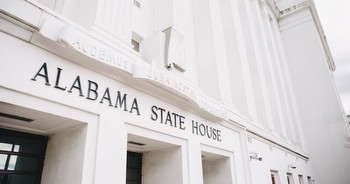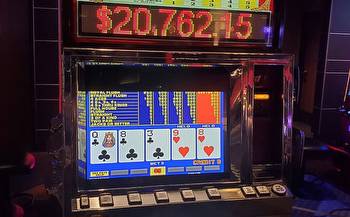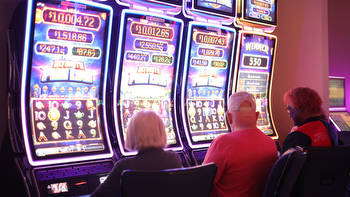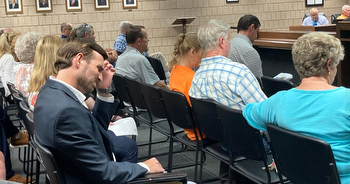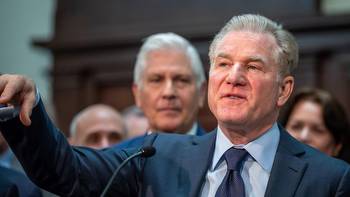Budget votes loom as clock ticks on NC casino, gambling proposals

The North Carolina General Assembly seems to be on pace to finalize a long-delayed state budget next week, but there's no certainty yet whether that spending plan will include a massive expansion of legal gambling.
House Republicans met behind closed doors for more than three hours Tuesday in part to go over proposals to legalize four new commercial casinos and abandon a decades-long push to excise video poker machines from bars and gas stations around the state in favor of regulating and taxing the slot-machine-style games. Speaker of the House Tim Moore said later in the day that it will take some time to tally up support, and that these plans won't come up for a vote without at least 50% support among the House's Republican majority.
If these measures do come up for a vote, it may be as part of the budget, ramping up a push to accept the full budget plan no matter how members feel about gambling.
The pressure will be intense: This budget not only includes raises for teachers and state employees and funding for state government but a Medicaid expansion worth billions to the hospital industry, and which would provide health insurance to hundreds of thousands of the state's working poor. It will also include hundreds of local projects — state spending in individual lawmakers' districts.
A cadre of lobbyists is pushing legalization while social conservatives, as well as local residents in areas where casinoswould be built, urge lawmakers to vote no.
"Our kids today have enough bad things on their doorstep," said Joni Robbins, a Nash County resident who joined about three dozen other protestors outside the legislative building Tuesday.
"I'm a mama bear," Robbins said. "Don't mess with our kids. If you mess with our kids, we will vote you out."
Together the two changes in state gambling rules could generate billions in new tax revenue for the state, fueling ambitions in the Republican-controlled state legislature to cut taxes beyond an already-in-law plan to roll back personal and corporate tax rates. Supporters also say casinos would create jobs when entertainment districts, with hotels and restaurants, spring up as part of the casino developments called for in draft casino legislation.
Moore, R-Cleveland, said there are differences between the casino proposal that House Republicans went over Tuesday and the draft plan that emerged in July but still hasn't been formally filed at the statehouse. Moore declined to go into details, but he said the House version doesn't require a single company to win three new casino licenses around the state, a key detail in the draft proposal.
That draft plan allowed for new casinos in Nash, Rockingham and Anson counties, plus a fourth casino controlled by the Lumbee Tribe in the southeastern part of the state.
It's not clear what the video lottery terminal portion of any new gambling legislation would look like. Moore said it was discussed in Tuesday's Republican caucus meeting, but the language has not been made public.
These issues have been percolating for months, with only a few public signs. Among them: Rockingham County commissioners voted last month to rezone nearly 200 acres for an entertainment district that would likely include a casino.
The decision sparked protests and has divided Republican leaders.
Republican Senate leader Phil Berger, who represents the county, is one of the General Assembly's leading proponents for a gambling expansion. Rockingham County Sheriff Sam Page, a candidate for lieutenant governor, joined protestors outside the legislature Tuesday, as did former U.S. Rep. Mark Walker, who used to represent Rockingham County in Congress and is now running for governor.
During that rally, Rockingham County residents announced they plan to file a lawsuit seeking to stop the casino project in their county. A 501(c)4 non-profit has been created to raise money for lawsuit and may also be used to advertise against politicians who vote for the project.
"If they don't want to listen to us, there will be opportunities for us to respond during the election cycle," Brandon Leebrick, one of the group's leaders, said.










